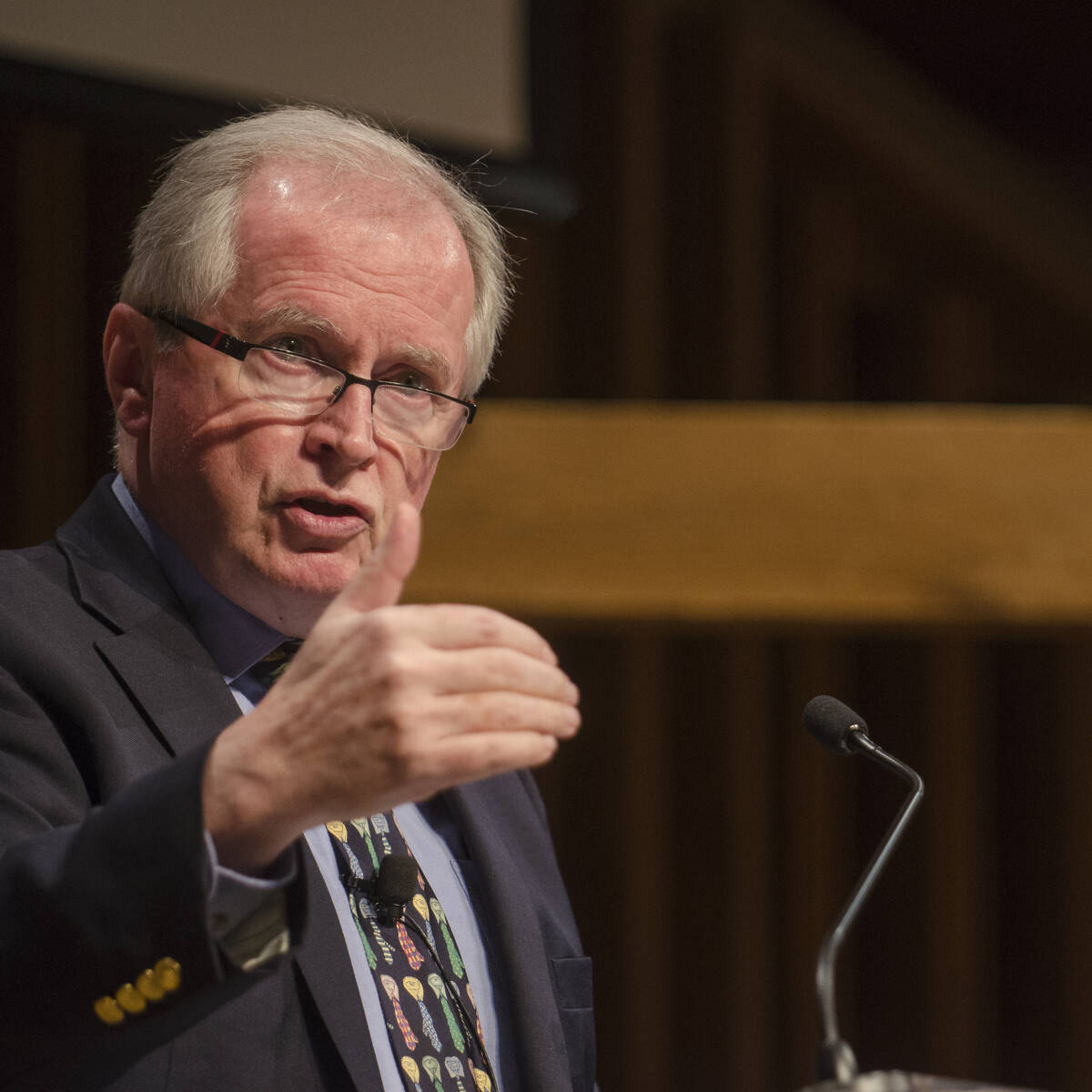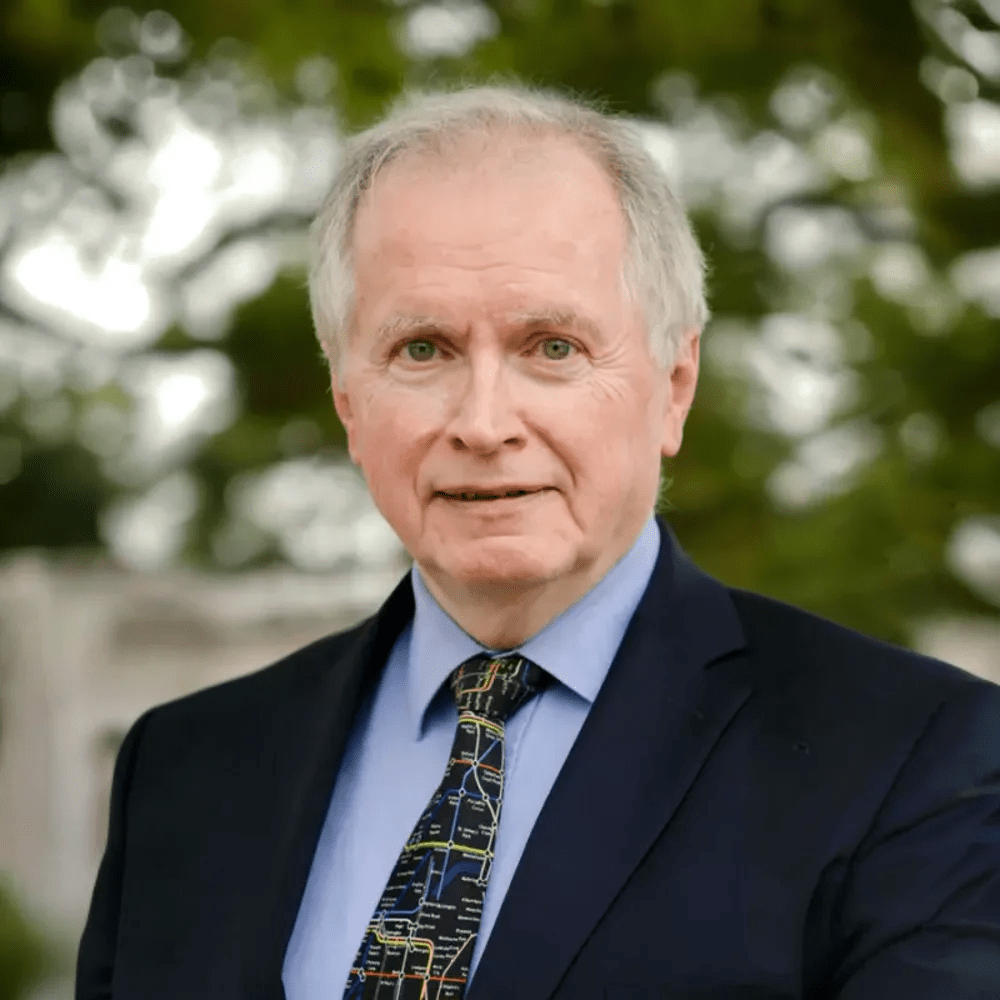Donald Arthur Carson, emeritus professor of New Testament at Trinity, led a group of pastors and seminary professors in laying the groundwork for the establishment of The Gospel Coalition (TGC) with a monumental vision: equipping young pastors in defending the evangelical faith with theological rigor and fruitful local church ministry.
Against the backdrop of shifting social and cultural dynamics that marked the turn of the century, the distinguished pastor-theologian, alongside Tim Keller, planted the seeds for an initiative that would eventually blossom into what we now know as TGC, right on the Deerfield campus of Trinity Evangelical Divinity School (TEDS).
Carson and his fellow pastor-theologian, Timothy Keller, founder of Redeemer Presbyterian Church in Manhattan, served as co-chairs of “The Pastors’ Colloquium,” the forerunner of TGC.
Carson envisioned pastors working in local churches who are on the frontlines engaging culture, in order “to defend without being defensive, to contend for the faith without being contentious; to foster regional links around the country, so we will learn to lean on one another, learn from one another and support one another—in church planting, university outreach, mentoring of young pastors.”
He called attention to the need to provide support and encouragement “to younger non-white pastors who, though they share our vision, sometimes find themselves caught between their own cultures which no longer quite accept them, and white cultures which do not yet quite accept them.”
In honor of Carson, TGC launched The Carson Center for Theological Renewal in September 2023 to foster “spiritual renewal around the world by providing excellent theological resources for the whole church—for anyone called to teach and anyone who wants to study the Bible,” according to TGC Vice President for Content and Editor-in-Chief Colin Hansen (MDiv’10). “Spiritual renewal follows theological renewal when the ancient gospel of Jesus Christ recaptures our hearts and minds.”
TGC’s Forerunner
In 2000, Carson approached the nascent Henry Center for Theological Understanding at Trinity for a grant to establish “a network that could help recapture the center of confessional evangelicalism.”
“The idea came in 2000 at the same time that the Henry Center was being formed,” said Matthew Wiley, managing director of the Henry Center since 2022. “Dr. Carson was involved early on in the launching of the Henry Center itself and once we had been established, he came to [the Henry Center] with a proposal for a faculty initiative,” said Wiley.
Carson was proposing a “Forum for Biblical Ministry” that would invite some 40-50 select pastors for a two-day conference. The purpose was fourfold: “to enable them to get to know each other; to enable them to learn from one another; to provide further biblical and theological input; to set up a planning committee … to plan a major (or several major) conferences for pastors in the future …”
Dr. David Pao, the academic dean of TEDS, recalled that the Henry Center supported Carson’s program proposal because of the need “to think through the many facets of faithful ministry in the light of biblical theology.”
“Proposed by Don Carson, this [project] later evolved into The Gospel Coalition. The first major conference was [originally] proposed to be held in the fall of 2003,” Pao said. “After twenty years, now in 2023, we can testify to God’s work through this initiative.”
The first two conferences actually took place in 2005 and 2006. Besides Carson and Keller, 40 North American leaders attended the first conference held at TEDS located on the Deerfield campus of Trinity.
Around 2006, Carson enlisted the support of the Henry Center, reiterating his proposal in a seven-page application for a grant. This time, Carson formally named the project “The Pastors’ Colloquium,” with him and Keller as co-chairs.
In his grant proposal submitted through the Henry Center for Theological Understanding that year, Carson aimed for the establishment of a pastors’ forum that would meet once or twice a year for training in biblical theology along with a website that would publish “articles that not only articulate the faith and respond to various cultural development, but that seek to provide positive cultural apologetic within our confessionalism.”
That same year, the Henry Center approved and funded the project, with the Center itself helping execute Carson’s vision by launching the colloquium.
On its website, the Henry Center listed TGC as one of its earliest projects to promote “theological understanding” that is “dedicated to the advancement of wisdom in the evangelical church and academy.” The Center assisted TGC as it planned a conference, filed for non-profit status, and launched its own website.
“In 2007, a year after the group’s inception, TGC hosted a conference on (TEDS’) campus which drew together a wide range of pastors, theologians, and church staff,” the website stressed.
Reclaim the ‘Center’ of Evangelical Confession
Carson disclosed his thinking behind the initiative: “The Pastors’ Colloquium is a group of just under fifty pastors, invited by the co-chairs, Tim Keller and Don Carson, to consider together whether it is possible, in North America, to re-capture the ‘center’ of confessional evangelicalism,” he wrote in the grant proposal.
The pastors to be invited were broadly Reformed, springing from a mixture of backgrounds: Presbyterian, Baptist, Anglican, Free Church, and Independents.
He gave a hint of what recovering the “center” of confessional evangelism meant: “We think that any prospect of recapturing the center demands theological rigor combined with fruitful local church ministry that evangelizes and transforms, that engages the broader culture with respect and love, that takes the gospel, but not ourselves, with profound seriousness. We do not think that we can recapture the center by banging a drum and declaring that we are the center, inviting people to follow us.”
Carson wished to establish “certain kinds of confession-shaped, gospel-driven, Christ-centered ministries that are either not being done or are not being done well, and, by breaking down some of the unnecessary boundaries as we prosecute these ministries, hold up a banner to which others will, in due course, gather.”
Attached to the grant proposal is a draft statement of faith that affirms belief in one God in three equally divine Persons; inspiration and inerrancy of the Scriptures; creation, fall, and redemption; gospel as good news of Jesus Christ; incarnation of the Son of God; atonement of sins by Christ’s sacrifice; work of the Holy Spirit as the Paraclete; church as the body of Christ; sacraments of baptism and Lord’s Supper; return of Christ; bodily resurrection and last judgment; and renewal of God’s creation.
According to Wiley, centrist confessional evangelism is like “majoring on the main things” but not an initiative belonging exclusively to a certain denomination like the Reformed or Pentecostal.
This approach thinks of evangelicalism “as a theological movement that has some centering, anchoring pieces about commitment to the Scriptures, commitment to the gospel . . . and then less concerned for the peripheral things that divide churches,” he said.
Referencing Carson’s original proposal, Wiley said “That is basically . . . what TGC has become.”
“Fairly early on, you can see his [Carson’s] language of thinking about a group of pastors, an annual or semi-annual conference that would gather pastors and laypeople, and a website that would put up content that’s valuable to the church. What is interesting, however, you measure the success of that, is to see that those original seeds of the three-pronged approach—group of pastors, conference, and website—have materialized,” he said.
Accomplishments
Carson, who was president of TGC until 2020, is now its theologian-at-large. He was also president of the Evangelical Theological Society in 2022.
Besides being a prolific and persuasive writer and editor, Carson has been a speaker and lecturer in both the academe and in churches around the world. He has been teaching and mentoring pastors and theologians for close to half a century at TEDS.
“His accomplishments are well known to all of us here at Trinity,” Pao said, noting that Carson’s accomplishments are evident in his writing, teaching, involvement in the global church, and dedication to his family.
According to Pao, Carson is the author or editor of more than 60 books and 250 articles. The list of all his publications can be found here, but many of his books are available at the Rolfing Library at Trinity.


